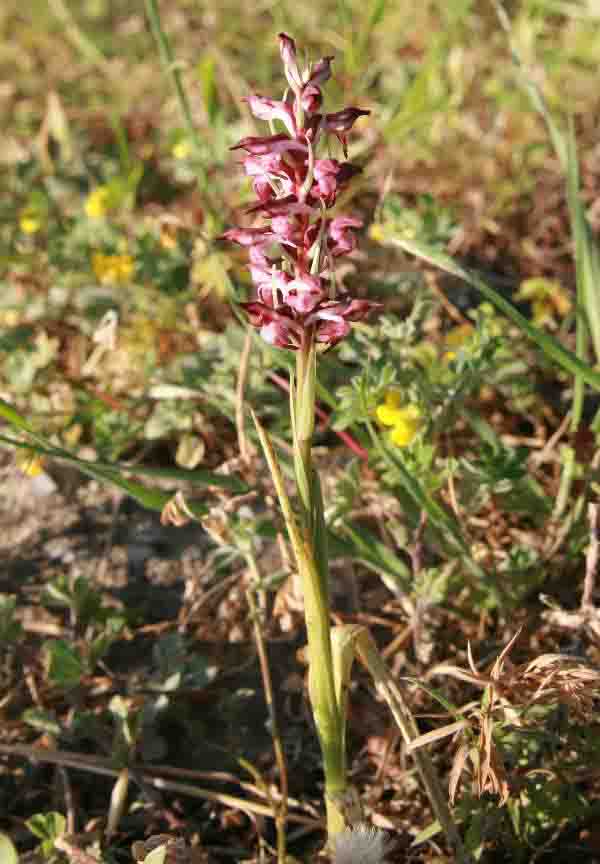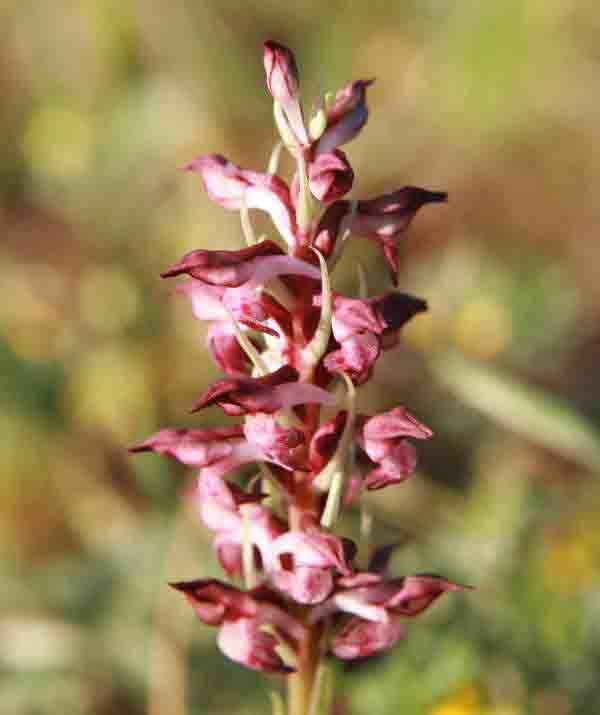Anacamptis coriophora subsp. fragrans - Fragrant Bug Orchid
Phylum: Magnoliophyta - Class: Liliopsida - Order: Orchidales - Family: Orchidaceae

Many authorities including The Plant List do not recognise this orchid at subspecies level.
Description
The Fragrant Bug Orchid is very similar to Anacamptis coriophora and is regarded by some as an eastern-flowering subspecies of the Anacamptis coriophora that also occurs further west in the Mediterranean region. The two are certainly very similar in appearance.
The lip of Anacamptis coriophora subsp. fragrans is longer than that of
Anacamptis coriophora and shorter than the lip of Anacamptis sancta,
with which it is also sometimes confused.
Habitat
Anacamptis coriophora subsp. fragrans grows in alkaline soils in open sunny positions, although it is occasionally found in open woodland. The true extent of its distribution is unknown due to confusion with Anacamptis coriophora but it has been reported from south and east Europe. It is said to grow in large colonies.
Flowering times
This attractive orchid blooms in March and April.

The plants shown on this page were photographed in Crete in early April. This orchid is also reported to occur in Slovenia.
Etymology
The genus name Anacamptis comes from the Greek anakampto, meaning 'bent back'; it refers to the shape of the flower spur. The specific epithet coriophora also comes from Classical Greek and means 'carrying bugs' - a reference to the rather unpleasant odour of this otherwise very attractive orchid.; however, the subspecies name fragrans suggests that this particular subgroup of bug orchids has a more pleasant smell.
Reference sources
The Plant List
Sue Parker (2023) Wild Orchids of the Algarve - where, when and how to find them; First Nature e-book (Amazon Kindle format)
Chris Thorogood and Simon Hiscock (2014) Field Guide to the Wildflowers of the Algarve; Kew Publishing
Pierre Delforge (2005) Orchids of Europe, North Africa and the Middle East; A&C Black
Please Help Us: If you have found this information interesting and useful, please consider helping to keep First Nature online by making a small donation towards the web hosting and internet costs.
Any donations over and above the essential running costs will help support the conservation work of Plantlife, the Rivers Trust and charitable botanic gardens - as do author royalties and publisher proceeds from books by Pat and Sue.


